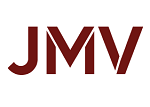
As the year gradually wraps up, there’s no better time to go back to the list of the financial goals you made at the beginning of the year to see how far you have come. The end of the year tends to be one of the busiest times for most people, however, slacking on making strategic year-end moves could affect you long term, even into the new year. Ticking off all your financial checklist between now and year-end might not be feasible, but you can set the ball rolling for the following year by taking steps in the right direction. Here, we’ve made a list of strategic year-end money moves to help you get started before the merriment of the holiday season sets in.
#1. Audit Your Finances
Perhaps, the best place to start before proceeding with any other grand money move is to evaluate where you currently are. Monitoring your cash flow-, i.e., knowing where your money is coming in from, whether it’s growing, and how it’s being spent is one of the best ways to keep tabs on your financial plan. You can easily achieve this by setting a day when you and your advisor can go over your plan and account together. ingAs the year draws to a close, it’s a good time to review your budget, expenses, debts if any, savings rates, and spending plans.
Are you where you planned you’d be this time last year? If not, what could you have done differently? If yes, how did you manage to achieve this? Take advantage of this moment as an opportunity to plan out your upcoming year.
#2. Put Extra Cash to Work
If you’ve audited your finance and monitored your cash flow closely, then this should be able to tell if you have extra cash, what’s been working and what’s not.
The pandemic certainly emphasized the need for an emergency fund, but what if you could put your money to work instead? Most persons have money stored up in their savings. However, cash in the bank pays you almost next to nothing. You could put your money into good use by:
-
Investing in a Tax-advantage Account
You probably have heard about a 401(k), 403(b), or IRA. These are all accounts that allow your money to grow via the tax benefits they offer.
An IRA offers a tax-deferred advantage. Your taxable income is lower by making a pre-tax contribution in a 401(k) and 403(b). Additionally, your money grows tax-free in these accounts.
If you’re going to be 50 by December, you can grab an extra $6,500 from a 401(k) and 403(b) or $1,000 to an IRA.
-
Invest in Brokerage Account
A brokerage account is another perfect place to save money for long-term goals.
-
Pay Off (or down) any High-Cost Debt
Rather than leaving your money dormant in savings, paying off your debt, especially high-cost ones, is a wise alternative. Allowing the interest to accumulate will keep increasing the debt further, which is bad for your credit score.
-
Refinance Your Mortgage
Refinancing your mortgage could offer you a new amortization schedule and save you significant costs.
#3. Review Your 401(k)
You should go over your 401(k) allocations and contribution schedule to see if you make the most of your account.
If you are an employee, are you maximizing the 401(k) match which allows your employer to match your contributions? If not, you might be missing out on a huge opportunity.
You should also note that your method of investment in a 401(k) determines what you gain from it. So, checking to know whether you need to rebalance your 401(k) is critical. You should also consider rolling your 401(k) or 403(b) over to an IRA so that your investment is not limited to retirement.
As much as you can, max out your tax-advantaged retirement account contributions to your 401(k), 403(b), or IRA.
#3. Review Your 2021 Contributions For Open Enrollment And Benefit Elections
You could be one of those lucky people whose company allows their staff to adjust their benefit elections during the year’s end. If so, you should seize the opportunity to opt-out of dormant insurance coverage, look for employer-paid benefits and explore other beneficial options.
For instance, a flexible spending account (FSA) offers a tax advantage by letting you make pre-tax contributions. Also, ensure that your health insurance coverage is cost-effective.
#4. Portfolio Diversification and Other Investment Strategies
While investing is essential, how you invest is more important. It’s what determines your returns. One of the best ways to optimize your investments for higher returns and less risk is diversifying your portfolio. Diversification is an investor’s formal way of saying, “do not put all your eggs in one basket.” By scattering your investments, you could earn from several avenues and stand less chance of losing all your money if one investment vehicle fails; hence, why you should look for other viable investment opportunities to put your money.
One of the easiest ways to achieve this is investing in mutual funds or exchange-traded funds (ETFs). ETFs allow you to spread your money over a basket of shares. That way, you get to enjoy a low-risk diversified portfolio. If you are looking to diversify a concentrated stock, especially your company stock, you may have an edge. Employer stock gives you the opportunity, during the year-end, to spread your more than two years’ taxable gains within days or weeks.
Additionally, you could consider tax-loss harvesting. Instead of letting those investments that have lost value in your portfolio become a total waste, you could sell them off to pay off taxes. Rebalancing your portfolio can also give you the perfect investment mix.
Bottom Line
As the saying goes, a tick in time saves nine. You can use this time before the year rolls out to get your financial house in order. With this information at your fingertip, it shouldn’t be hard to begin making the right money moves.

